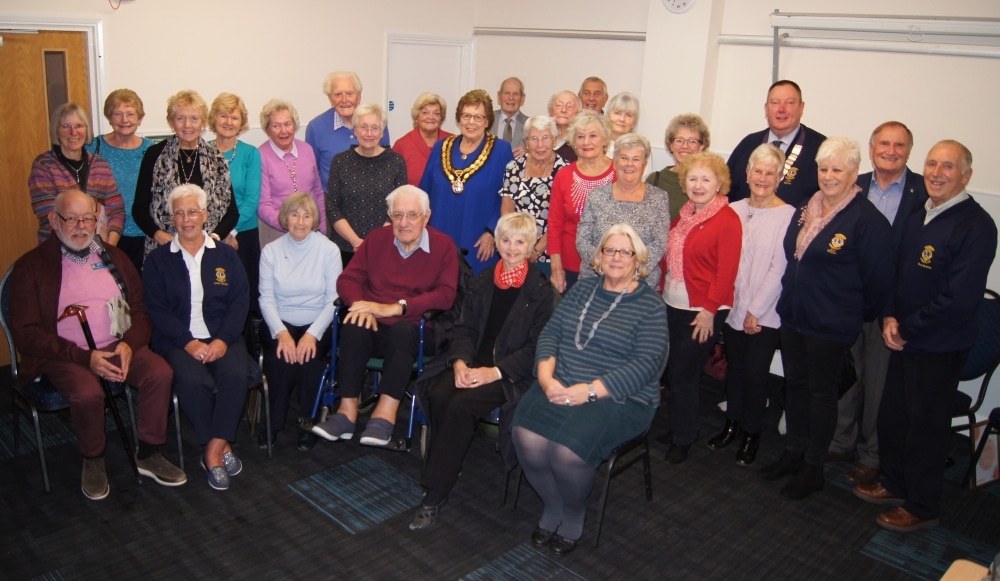The idea originated from Les Ellis, a director of the Kent Association for the Blind [KAB], in 1978, when he set up a small recording room in a basement in Maidstone.
Frank Emmet became the co-ordinator for the Tonbridge Talking News, assisted by his wife Dorothy, but ill health meant he soon needed to find a replacement.
Richard Rose of Tonbridge Lions Club took over the job using recording equipment provided by KAB, and in November 1979 a Lions committee was formed and the first weekly recording was made.
The early editions were done with a reel-to-reel tape deck, a mixer box, four table pedestal microphones and a cassette recorder. Richard’s son, Derek, arranged the introduction and lead-in music to start the tapes and the jingles for the fade-out at the end.
The first recording was done at Woodgate Care Home, and it later moved to Tonbridge School, St Stephen’s Church and the Cottage Hospital – its current location.
To celebrate the 40th birthday, Richard, who still organises the news recordings, invited former and current editors, readers and technicians to a special reception at the Angel Centre.
The guests were joined by the Mayor of Tonbridge & Malling Borough Council, Jill Anderson, KAB Trustee Tony Colwell and Louise Morrison, who oversees 13 talking newspapers for the charity.
Tony congratulated and thanked Richard and his team on their achievement and spoke of the many benefits the service gives to the registered blind.
The Mayor presented long-service certificates from KAB to 14 editors and readers for 20, 30 and 40 years of voluntary service.
The Talking Newspaper runs with five teams, each consisting of one editor, four readers and one technician. Each team records once every five weeks on a Friday evening from 7.15-8.45pm.
They read out local news articles from printed weekly newspapers – and some social media – which are selected by the editor earlier in the day.
These are recorded and uploaded to the KBA in Maidstone, then the sound file is copied on to memory sticks and sent to the recipients in the Tonbridge area.
The service enables local people to keep up with the news in their community which they would otherwise be unable to access.








